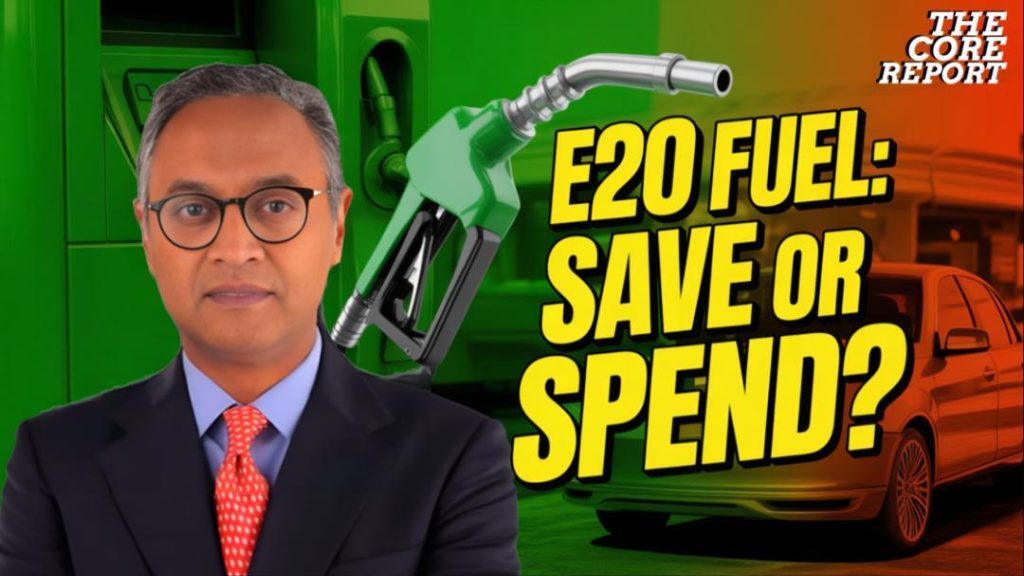
E20 Fuel in India: Benefits, Risks & What Vehicle Owners Must Know
India’s transportation sector has long been a significant contributor to the country’s carbon footprint. To reduce its reliance on fossil fuels and mitigate the negative environmental impact, the Indian government has been promoting the use of ethanol-blended gasoline, particularly E20, which is a 20% ethanol and 80% petrol blend. In this blog post, we’ll delve into the benefits and risks of E20 fuel in India, what vehicle owners must know, and what the future holds for this cleaner-burning fuel.
Benefits of E20 Fuel
The Indian government has been aggressively promoting E20 fuel as a sustainable alternative to traditional petrol. Some of the benefits of E20 fuel include:
- Reduced Carbon Emissions: E20 fuel emits 35% less carbon dioxide (CO2) than regular petrol, contributing less to climate change and air pollution.
- Boosts Energy Security: By blending ethanol with petrol, India can reduce its dependence on imported fossil fuels, improving energy security and reducing the trade deficit.
- Supports Farmers: The use of ethanol as a fuel additive benefits Indian farmers by creating a new market for sugarcane and other agricultural products, providing an additional source of income.
- Improved Engine Performance: Studies conducted by the Indian government have reported improved acceleration and fuel efficiency in vehicles running on E20 fuel.
Risks of E20 Fuel
While E20 fuel offers several benefits, it’s not without its risks. Some of the concerns that vehicle owners must be aware of include:
- Older Vehicles not Designed for E20: Vehicles that are not designed to run on E20 fuel may risk engine wear, fuel system corrosion, and mileage loss. This is because E20 fuel has different combustion properties than regular petrol.
- Engine Damage: Running E20 fuel in older vehicles that are not compatible can lead to engine damage, which can result in costly repairs.
- Fuel System Corrosion: The ethanol content in E20 fuel can corrode fuel system components, including fuel tanks, fuel lines, and injectors, leading to costly repairs.
- Increased Maintenance: Vehicles running on E20 fuel may require more frequent maintenance due to the corrosive properties of ethanol.
What Vehicle Owners Must Know
To ensure a smooth transition to E20 fuel, vehicle owners must take certain precautions:
- Check Vehicle Compatibility: Before switching to E20 fuel, vehicle owners must check their vehicle’s compatibility with E20 fuel. If their vehicle is not designed for E20, they should continue to use regular petrol.
- Regular Maintenance: Vehicle owners must ensure regular maintenance of their vehicles, including oil changes, filter replacements, and cleaning of fuel injectors.
- Avoid Mixing with Other Fuels: Vehicle owners must avoid mixing E20 fuel with other fuels, including diesel or other ethanol blends, as this can cause engine damage.
- Monitor Fuel Quality: Vehicle owners must monitor the quality of E20 fuel to ensure it meets the required specifications.
Future of E20 Fuel in India
The Indian government has announced that by 2025, all new vehicles will be E20-compliant, easing adaptation concerns. This means that new vehicles will be designed to run on E20 fuel, reducing the risk of engine damage and fuel system corrosion.
In conclusion, E20 fuel offers several benefits, including reduced carbon emissions, improved engine performance, and energy security. However, vehicle owners must be aware of the risks associated with E20 fuel, including engine damage, fuel system corrosion, and increased maintenance. By taking certain precautions, vehicle owners can ensure a smooth transition to E20 fuel and enjoy the benefits of a cleaner-burning fuel.
Source: https://youtu.be/zM_EyWPyliQ






